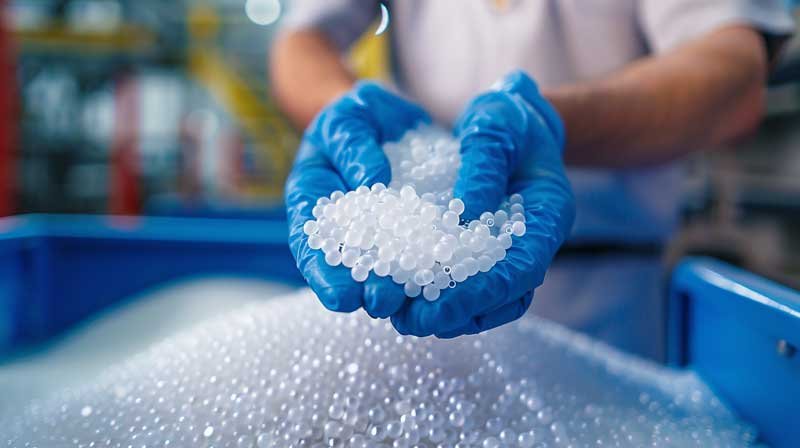Have you ever wondered why silicone, a material found in everything from kitchen utensils to medical devices, doesn’t react with most chemicals? This question is crucial for industries and consumers alike. Silicone’s inert nature makes it a preferred choice in environments where chemical reactivity can pose a risk or reduce functionality. Understanding this characteristic can help us appreciate the material’s versatility and safety.
Silicone’s inertness is primarily due to its unique molecular structure. The silicon-oxygen backbone of silicone is highly stable and resistant to attacks by most chemicals. This stability ensures that silicone does not react with substances it comes into contact with, maintaining its integrity and functionality over a wide range of temperatures and conditions.
This feature is essential for applications requiring long-term durability without degradation.
What Makes Silicone Resistant to Chemicals?
The chemical resistance of silicone is one of its most celebrated features. But what exactly contributes to this resistance? The answer lies in the strong silicon-oxygen bonds in its structure. These bonds are much stronger than the carbon-carbon bonds found in many other polymers, providing a robust framework that resists breakdown or reactivity.
How Does Temperature Affect Silicone’s Inertness?
Silicone maintains its properties across a remarkable range of temperatures. From freezing points well below zero to heat exceeding 300°C, silicone stands strong. This thermal stability is a direct result of its molecular structure, which does not break down or change state easily under temperature variations.
Are There Any Conditions Under Which Silicone Can React?
While silicone is notably inert, extreme conditions can challenge even the most resilient materials. At very high temperatures (above 400°C), silicone can start to degrade, typically resulting in a loss of mechanical properties and an increase in brittleness. Additionally, certain strong acids and bases can cause silicone to swell or soften, though it generally does not break down chemically in these environments.

What Are the Practical Implications of Silicone’s Inert Nature?
Healthcare Applications
Silicone is commonly used for medical implants, tubing, and wound dressings. Its non-reactivity ensures safety in the body and makes it suitable for devices that require frequent sterilization, such as surgical tools and catheters.
Automotive Industry
Silicone sealants and gaskets are used in engines and transmission systems, where they resist exposure to oils, coolants, and extreme temperatures. This helps maintain performance and longevity in demanding automotive applications.
Food and Beverage Industry
Silicone’s food-grade properties make it a popular choice for baking molds, kitchenware, and food processing equipment. Its inertness ensures it does not react with food or absorb flavors and can withstand high temperatures in cooking and sterilization.
Electronics and Electrical Insulation
Silicone is used for coating and sealing electronic components to protect against moisture, dust, and chemicals. It also serves as an insulating material in cables and connectors due to its stability across a wide temperature range.
Industrial Manufacturing
In industrial settings, silicone lubricants and sealants are used to protect machinery and equipment exposed to harsh chemicals or environmental conditions. Its durability reduces maintenance needs and prolongs equipment life.
Aerospace Applications
Silicone is applied in aircraft seals, adhesives, and thermal insulation because of its ability to perform under extreme temperatures and resist chemical exposure, ensuring safety and reliability in critical aerospace components.

How Does Silicone Compare to Other Polymers in Terms of Reactivity?
When compared to other polymers like PVC or polyethylene, silicone exhibits superior chemical inertness. This makes it an invaluable material in applications where chemical exposure is a concern. Its ability to perform reliably under such conditions is a key factor in its widespread use across multiple industries.
Here’s a comparison table that can be added to the article:
| Property | Silicone | PVC (Polyvinyl Chloride) | Polyethylene (PE) |
|---|---|---|---|
| Chemical Reactivity | Highly inert, exhibits superior chemical resistance. Ideal for applications with chemical exposure. | Moderate reactivity; can degrade when exposed to certain chemicals like acids or solvents. | Lower chemical resistance compared to silicone; prone to degradation with strong oxidizing agents. |
| Performance Under Chemical Exposure | Reliable and consistent performance in harsh environments. | May show deterioration over time when exposed to harsh chemicals. | Limited use in chemically aggressive environments. |
| Usage Across Industries | Widely used in medical, automotive, food-grade, and industrial applications due to its chemical inertness. | Commonly used in construction, medical tubing, and toys but with some limitations. | Often used in packaging, tubing, and insulation but less suitable for demanding chemical exposure. |
This table clearly illustrates how silicone’s chemical inertness sets it apart from other common polymers, making it the preferred choice in applications where chemical resistance is essential.
What Research Supports the Inert Nature of Silicone?
Numerous studies have confirmed the inert characteristics of silicone. Research focusing on its stability and resistance to environmental factors like UV light, ozone, and saltwater further solidifies silicone’s reputation as a durable material. These studies are essential for industries relying on precise and reliable material performance.
Conclusion
The inert nature of silicone is not just a chemical curiosity but a fundamental property that defines its applications and reliability across industries. Its ability to withstand harsh environments without degrading makes it an indispensable material in many high-stakes applications. Understanding and appreciating this property of silicone can lead to better, more informed choices in materials science and engineering.